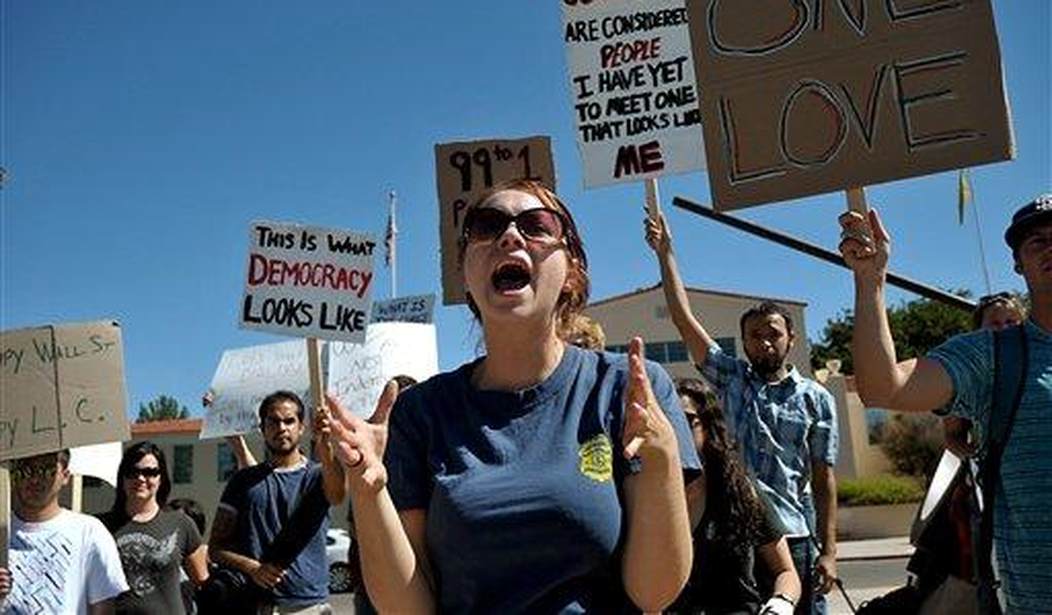Pamela Paul is quickly becoming my favorite columnist at the NY Times. Last month she wrote a piece titled “In Defense of JK Rowling” which argued that Rowling was not transphobic. As you can imagine, many heads exploded over that one. Today she has a column about the Stanford Law School fiasco which makes the argument that the people who lost the most in the encounter were the protesters themselves.
On April 8, 1991, when I was a sophomore at Brown University, Supreme Court Justice Antonin Scalia came to campus to speak. Conservatives allegedly existed at Brown, but the school was as true to its left-leaning reputation then as it is now…
That April evening of Scalia’s talk, I lined up with my anti-Helms T-shirt on. I barely made it into a back row of the packed auditorium, where I awaited what would surely be a triumphant Q. and A. session. Once Scalia finished and we the righteous had a chance to speak truth to the evil one, we would rip apart his so-called originalism, his hypocrisies, his imperiousness. We were champing at the bit to have our say.
And then he wiped the floor with us. In answer to our indignant questions, he calmly cited rebutting cases. We fulminated and he reasoned, and when we seethed he lobbed back with charm. Within the hermetic bubble of my liberal upbringing and education, it had never occurred to me that even when finally presented with The Truth, someone from the other side could prevail. I’d been certain we would humiliate him. Instead, I left humbled.
Obviously that kind of encounter isn’t possible in a world where students don’t wait there turn to unleash their brilliant intellects but instead behave like a mob out to ensure no wrong-think can be uttered. That’s exactly what happened to Judge Duncan. The students who invited him weren’t allowed to hear him. Judge Duncan wasn’t able to have any civil discussions with students. But the biggest losers were the social justice warriors who missed out on a lesson they needed to learn.
Unleashing on Duncan may have felt good in the way we Brown students felt good asking our “tough” questions of Scalia. But whereas we got to hear the answers, the Stanford Law School students did not. It isn’t enough to challenge someone unless you’re willing to be challenged back. Scalia’s answers may not have made us feel especially good, emotionally or intellectually. They did, however, teach us the value of listening and motivate us to be smarter.
Paul is not a conservative and she never did come around to agreeing with Scalia. But she did learn an important lesson that the Stanford Law students did not. As Paul puts it, “What happens if you assume your political opponent isn’t evil — if you even know that he’s not?” What happens is you learn something, both about your opponent and about yourself. But deplatforming ensures that can’t happen.
Paul concludes by pointing out that, once these students reach the real world, forming a mob to shout down their opponents across the table or in the courtroom won’t work. They’ll have to make arguments. They’ll have to listen to the other side and respond with actual thought rather than crude slogans and talking points. College is the place you’re supposed to learn that stuff and if you don’t learn it there you will find yourself on the wrong end of a floor-wiping sooner or later.
Finally, there are a lot of good comments on this piece, including the most upvoted ones.
I remember a similar event at my college. Oliver North spoke and everyone lined up to let him have it. He did the same as mentioned in the article–he wiped the floor with the students.
It did not make him right, but I think it taught at least a few of us to think better and argue better. You need to have facts, and you need to present an airtight argument or you will lose.
One futher thing I think people forget–belittling others does not work. I have never, ever changed my mind because someone let me have it (parents excepted), or just told me to be quiet. I have changed my mind when someone considerately engaged with me and dismantled my argument with reason and compassion.
Of course, for that to happen, we need to be taught how to reason and how to recognize good and faulty logic. I don’t think many folks can do that these days.
Another one:
It is sad to see how willing students are to shut down debate, but absolutely infuriating to see how educators at all levels (and parents!) have failed to teach children the value of civil debate.
From a reader in Boston:
Both Scalia and John Roberts came to speak while I was in law school. Though I continue to disagree with their views, I found them to be incredibly intelligent speakers and I am glad they were allowed the opportunity. It is not justice to silence those you disagree with.
Lastly, a reader from SoCal:
I can’t help but wonder what this generation will bring to the courtrooms, classrooms, and boardrooms of America in the decades to come. Whether left or right, we have to listen – and those speaking can’t be heard over the shrieks of this generation who is so intent on their righteousness that there’s simply no room for discussion.
There are still lots of adults in the center and center-left of this country who get it. It’s a relief to hear from them once in a while.








Join the conversation as a VIP Member